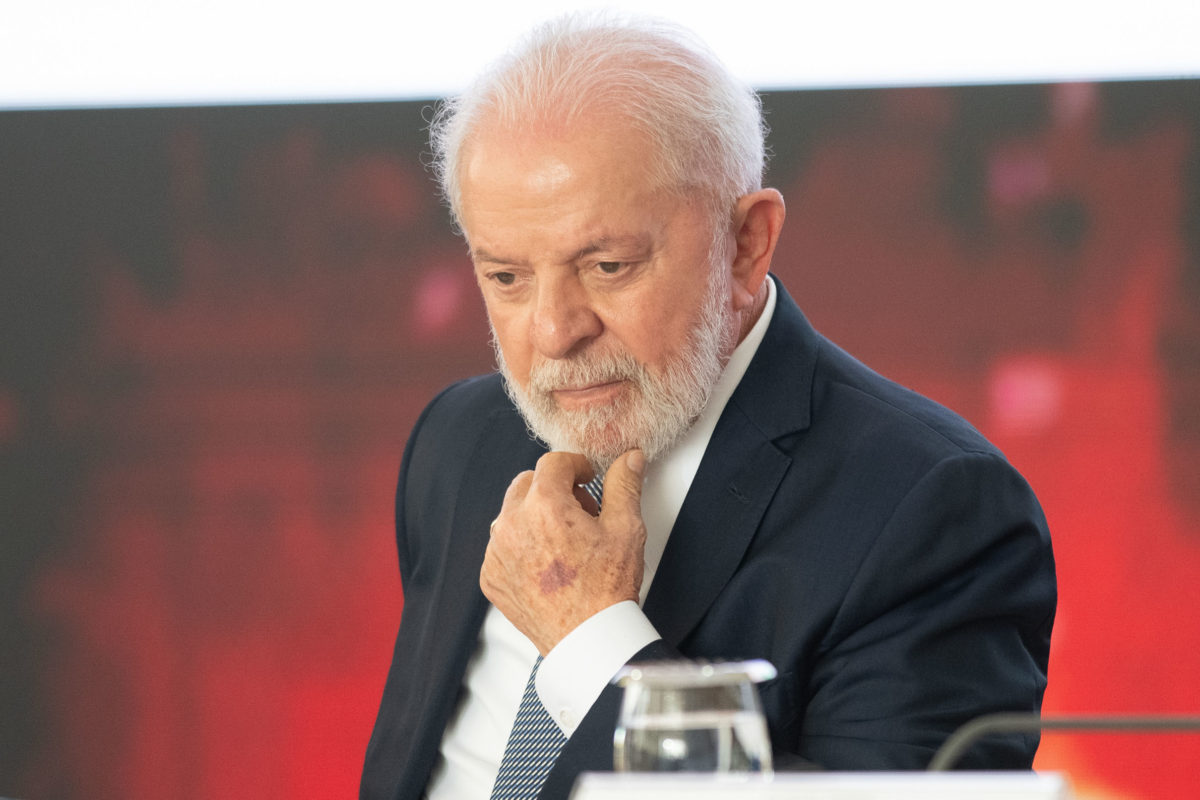When I arrived at Metal Open Air, everyone was waiting for the event promised by the organization: 47 attractions were on the festival program on April 20, 21 and 22, 2012.
- Share by WhatsApp
- Share by telegram
There was the promise of a campsite for fans, a football championship, a supermarket, a food court, a tattoo studio…
Thursday, the day before the event, I noticed that the campsite was in a stable, with only one shower for hundreds of fans camped out.
Imagine a shower for hundreds of people and everything smelling like horse manure. The uncomfortable smell was due to the fact that the Parque Independência, in São Luís, was used to host the Maranhão agricultural exhibition (Expoema).
In practice, this first impression made me a little wary. The public was a little more tolerant and very patient with what happened there the day before: basically, a mixture of indifference and misinformation.
On Friday, the first day of the festival, there was nowhere to camp, nowhere to eat, and the rain only made matters worse.
Even the stages weren’t ready, nor the dressing room for the bands. So by Thursday it was already clear that something was wrong. Considering all of this, the exclusion of the tattoo parlor by local health surveillance was the least of the problems. You couldn’t get a tattoo, okay, as long as you had at least something to eat. It was the conversation.
- The silence of the production and the empty stages mark Metal Open Air
- After 10 years, injured fans at Metal Open Air have never been compensated
Public Metal Open Air, in 2012, during a concert by the Canadian band Exciter — Photo: Alex Trinta/g1
Day 1: no shower in the locker room
Friday started with a show canceled by Headhunter DC During the event, headliners such as Anthrax, Saxon, Venom, Rock n’ Roll All Stars and Ratos de Porão canceled shows and claimed visa or visa issues. costs.
In practice, the Metal Open Air kicked off around 3 p.m. Friday, with Exciter. To the sound of the Canadian group, fans already had a few options for dining under the blazing sun. At the end of the show, I went to interview the singer backstage, his nickname was Metal Mouth. He was sweating a lot, we all did. I asked how it had gone and he congratulated him: he liked the atmosphere of the public.
I then joked that he could finally take a shower to beat the heat. And then he said there were no showers in the locker room.
The whole band structure was mambembe. The structure was reminiscent of the booths at a school science fair.
The first day, in the end, turned out to be the best of the festival. Also on Friday, an Israeli band called Orphaned Land played. The singer had a look of Jesus Christ, and people liked him, found him very interesting. Another one day attraction was Anvil. The Canadian group became known after having the story of perrengues told in a 2008 documentary.
Anvil flew on the same plane as me. Upon arrival we were greeted by a show of artists performing local folk dances. At the festival, Anvil put on a very worthy show. I remember the drummer playing with a fanny pack and, in the intervals between one song and another, taking many sips of isotonic.
It was obviously not an environment they were familiar with, as was the case with the Brazilian attractions Almah and Shaman. Both groups were very well received. I noticed that the public seemed resigned during these shows: when you promise everything and give nothing at the beginning, everything you offer relieves the public a little.
So, in the late afternoon and early evening, people started getting more excited about Megadeth. They were the main attraction on Friday, with a show scheduled for 11 p.m. Around 1:30 a.m. the next day, Megadeth arrived and put on a terrible sight. The sound quality was terrible, with lots of dropouts. The duration was only one hour.
With each song, vocalist and guitarist Dave Mustaine would stop, walk to the sides of the stage, crack a joke. The speaker’s voice in the audience sounded louder than Dave Mustaine’s voice. And he, of course, was visually disturbed.
The bands Destruction, Anvil and Megadeth perform at Metal Open Air, in São Luís, in 2012 — Photo: Alex Trinta/g1
Day 2: disassembly and breakdown
Saturday, the second day of the event, started less well than the first. The organization again refused to admit that the festival no longer existed. As it had been sold, it no longer existed. The expectation was 80 thousand people on each of the three days. Saturday had the biggest audience of the festival, with around 10,000 fans.
The line-up had 47 bands, but only 14 played. There was a lack of bandwidth… and a lack of structure: I saw a lack of sanitation, transport, security and food. The general feeling was that everyone was trapped there: waiting for something to happen. And something, in this case, was nonsense. It can be a acarajé or a barbecue in two of the only food stalls or even a concert of any band. The advertised food court was never built: there were only three crowded food stalls.
Korzus, which is not just any band, played the last gig on Saturday. It was the last show of the festival. The trail at the end of the chaos. It was a feat that the band from São Paulo gave the great show they did, because the sound was even better than in several previous Metal Open Air presentations.
It must be considered that the lighting team had disbanded. Before the Korzus show, I interviewed several people from the technical team in charge of the stage structure, and they told me that they were leaving.
The team that took care of the locker rooms had already disbanded. This so-called VIP area has been destroyed. The partitions had fallen like sheets of paper. Plastic chairs were strewn on the floor, thrown everywhere.
The sound team was also gone. I asked these professionals why they took everything apart and what was going on. They said they were leaving. Most replied that they were afraid of a “collective revolt”.
It was therefore this feeling of fear of revolt that prompted the team to dismantle the stage, the light structure, part of the sound structure and the dressing room. In short, they were afraid of being beaten. The fear was unjustified: the reaction of the public was exemplary. The liveliest demonstrations were very few.
I spoke to people from afar who were camping or had paid accommodation until Monday. They were hostages to this situation, they had no way out of it. Those who were kicked out of the campsite had to camp in city parks or at the bus station.
The third day of the festival did not take place. It was then that the organization issued the official statement, finally, on Sunday afternoon. In practice, the festival no longer exists since Thursday.
The guitarist and bassist of the Canadian band Exciter, at the Metal Open Air festival, in 2012 — Photo: Alex Trinta/g1
Have the fans been reimbursed?
The two producers (Lamparina Produções Artísticas and Negri Produções Artísticas) exchanged accusations between themselves, during and after the event.
In 2018, the court sentenced the organizers to pay compensation of BRL 3,541.83 for moral damage to each of the supporters.
After the appeal of the festival’s defense, the public prosecutor asked the judge to suspect the case, which has not yet been decided by the Court of Justice of Maranhão. There is no timetable for the resumption of the process.
Audience on Saturday of the Metal Open Air festival, in 2012, the busiest day of the event in São Luís — Photo: Alex Trinta/g1

“Pop culture fan. Coffee expert. Bacon nerd. Infuriatingly humble communicator. Friendly gamer.”

:strip_icc()/s03.video.glbimg.com/x720/10625222.jpg)





